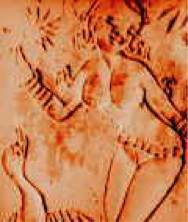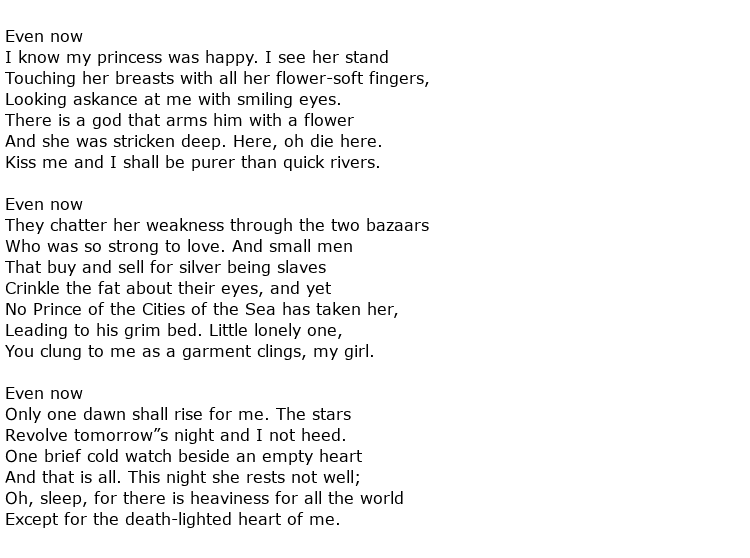 The Sanskrit writer known as Bilhana was a well-known Kashmiri poet who was most famous for a long love poem that he wrote numbering some fifty stanzas. He called it Caurapâñcâśikâ, and this became known in English as The Collection of Fifty Verses by a Love Thief. It was dedicated to a royal Princess, possibly called Princess Yaminipurnatilaka, daughter of King Madanabhirama. Legend tells of a secretive love affair between the two and, for this, the poet found himself imprisoned and uncertain of his fate. Incurring the wrath of the King in such a way was, understandably, a dangerous practice.
The Sanskrit writer known as Bilhana was a well-known Kashmiri poet who was most famous for a long love poem that he wrote numbering some fifty stanzas. He called it Caurapâñcâśikâ, and this became known in English as The Collection of Fifty Verses by a Love Thief. It was dedicated to a royal Princess, possibly called Princess Yaminipurnatilaka, daughter of King Madanabhirama. Legend tells of a secretive love affair between the two and, for this, the poet found himself imprisoned and uncertain of his fate. Incurring the wrath of the King in such a way was, understandably, a dangerous practice.
He was born Kavi Bilhana, perhaps in the middle of the 11th century though it is not certain exactly when. By his own words we can be certain that he was born in a village called Khonmukh. He describes it candidly thus:

It is recorded that he left his home district sometime during the reign of King Kalasa, this reign spanning the years 1029-1064. He set out on a journey which would take him to central India and the fateful, and dangerous, meeting with his Princess. His journeys brought him into contact with the highest members of Indian society and one, King Chalukya Vikramaditya VI of Kalyan, was so taken by Bilhana’s talent and erudite way of speaking that he gave him he prestigious title of Vidyapati, which translates as “Master of Learning”. Based on the reign of this king it would be possible to ascertain that Bilhana lived during the second half of the 11th century.
The period of imprisonment mentioned previously was certainly a traumatic time for Bilhana as he did not know if his ultimate fate would be death by hanging, or beheading, or if he might be exiled to some far off and unpalatable land. His surreptitious love affair with Princess Yaminipurnatilaka was his undoing and his period of incarceration was of a long enough duration to allow him to write his epic poem Caurapâñcâśikâ. Here are three translated verses which were the work of Edward Powys Mathers. He called it Black Marigolds and every verse of the poem begins with the words “Even now”:

A number of versions were heard all around India – no written versions would have been available at that time. Some will been narrated with a happy ending, perhaps with the poet marrying his Princess. Other versions would have told of a much less happy outcome. It took until 1848 for it to be translated into a European language – French – and it was picked up by a number of other translators such as Mathers and Sir Edwin Arnold.
Naturally Bilhana is credited with other pieces of work and one was at the behest of King Vikramaditya VI of the Western Chalukya empire. The King had him write a long panegyiric poem called Vikramankadevacharita. His work, and that of his contemporaries, would have been written in Sanskrit which was the common language of that region at that time.
Some accounts of his life suggest that Bilhana died in the year 1088, perhaps before reaching the age of 40. This cannot be confirmed unfortunately.

